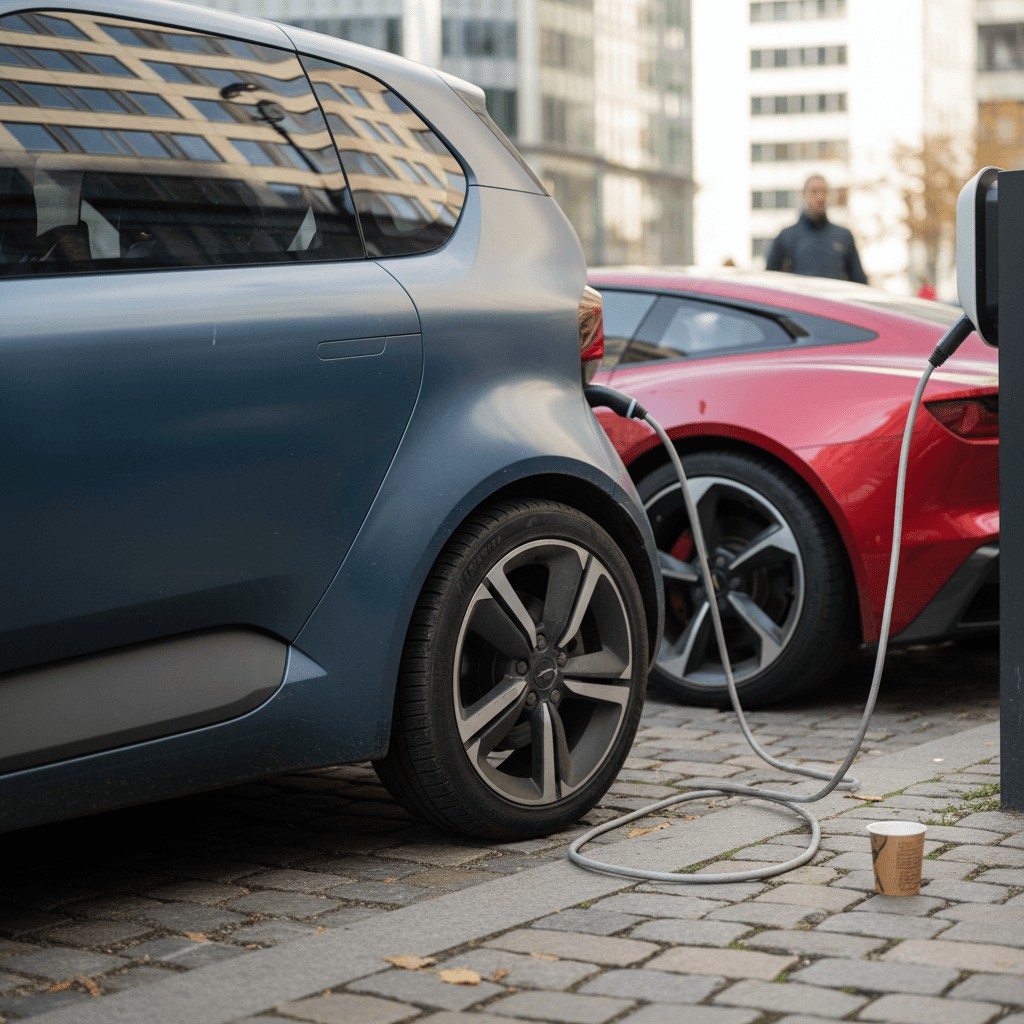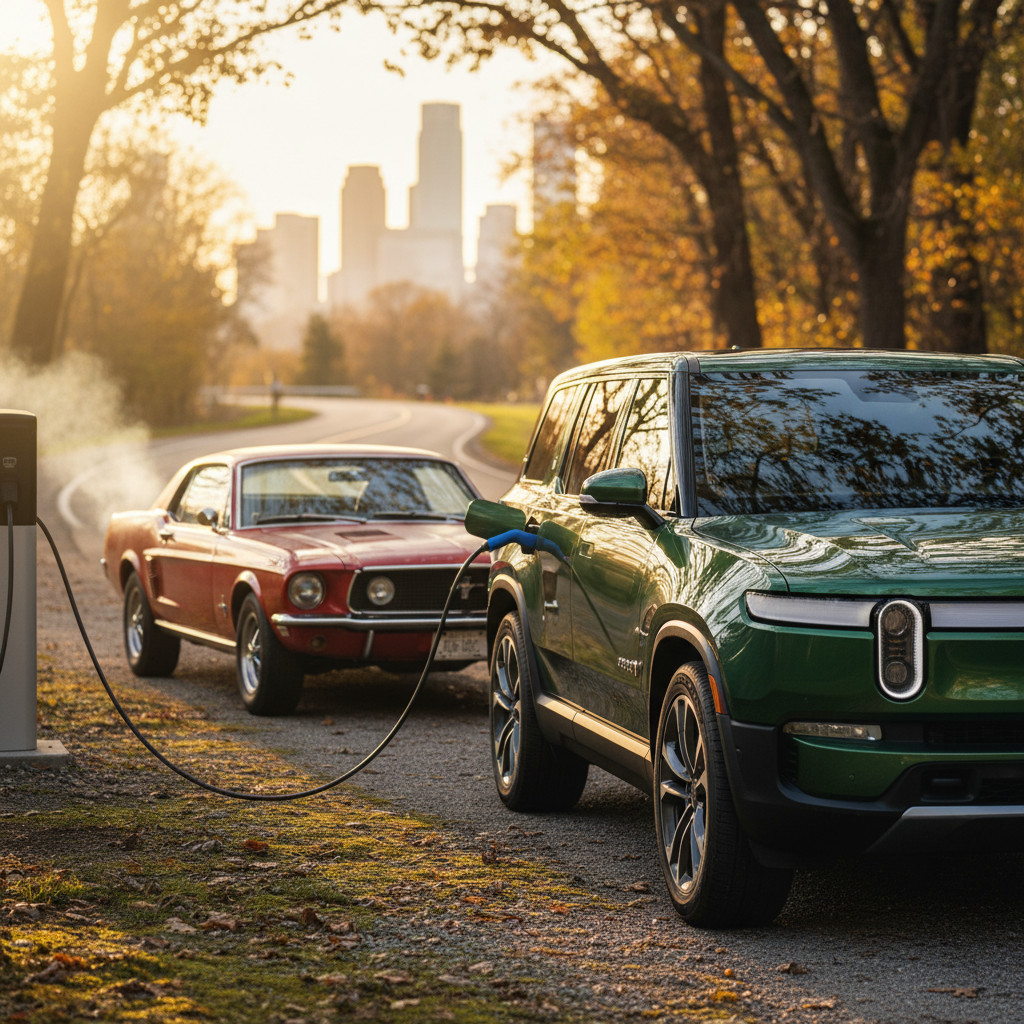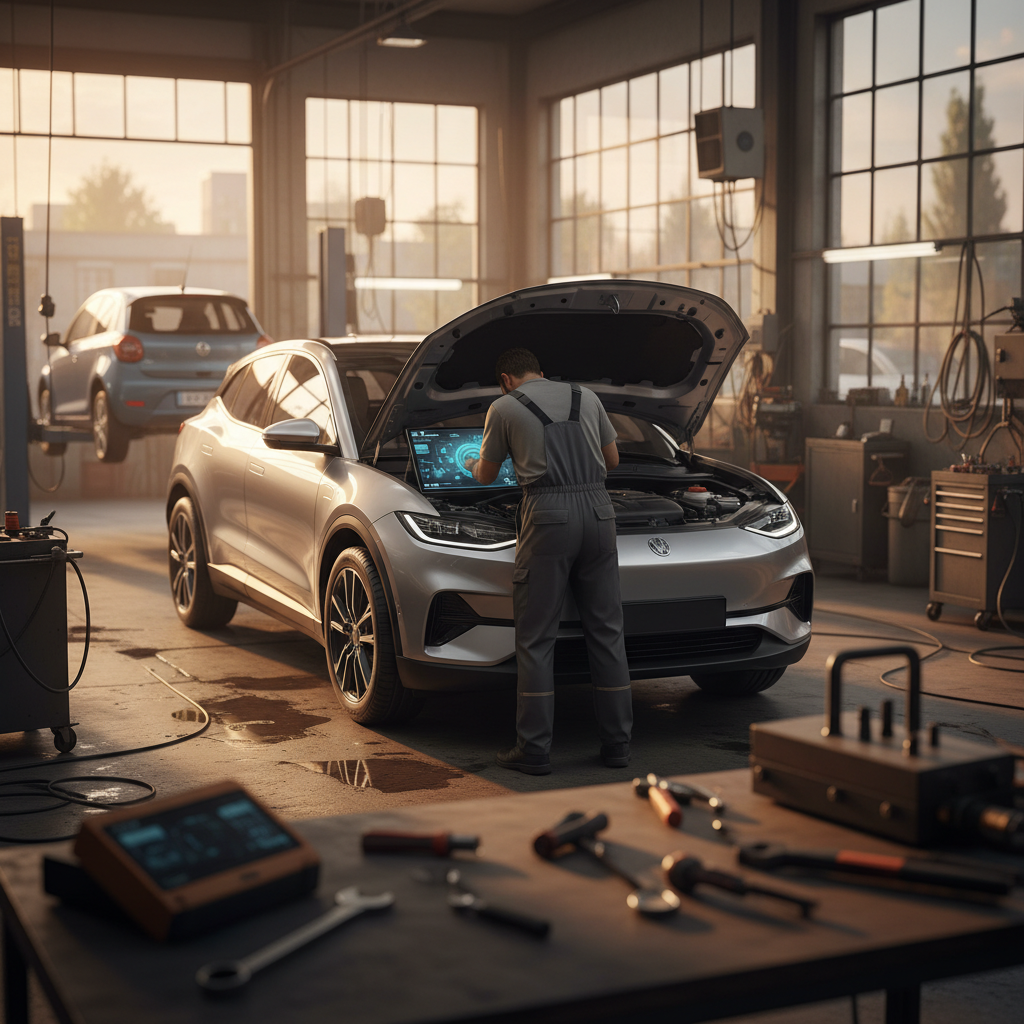Type “car repair shops near me” into your phone today and you’ll see a wall of options, chains, dealers, mom‑and‑pop garages. But if you drive a hybrid or a full electric vehicle, only a slice of those shops are truly ready for your car. This guide walks you through how to pick a trustworthy, EV‑friendly repair shop near you so you protect both your battery and your budget.
EVs change the repair-shop game
Why “car repair shops near me” matters in the EV era
For decades, finding a mechanic was simple: ask a friend, check a couple reviews, drop off your car. Electric vehicles and modern hybrids have changed that equation. Today’s cars are rolling computers with high‑voltage battery packs, dozens of control modules, and complex driver‑assist systems. A shop can have glowing customer service reviews and still be completely unprepared for your EV.
How EVs and hybrids change repair needs
That’s why you don’t just need any car repair shop near you; you need the right one for the type of vehicle you drive. For EV owners, that usually means a mix of a trusted local shop for routine work and a brand‑specialized facility for high‑voltage or software‑heavy jobs.
What local repair shops can, and can’t, do for EVs
What most good local shops can handle
- Tires and wheels: rotations, balancing, replacement, wheel alignment.
- Brakes: pad and rotor replacement, brake fluid flushes, parking brake issues.
- Suspension: shocks, struts, control arms, bushings, wheel bearings.
- General repairs: cabin filters, wiper blades, HVAC work, basic 12‑volt electrical issues.
These jobs are similar on gas, hybrid, and electric cars, so a skilled shop with up‑to‑date equipment is usually fine.
What often requires an EV‑specialist or dealer
- High‑voltage battery diagnostics or replacement.
- DC fast‑charging issues or charge‑port faults.
- Software updates, control‑module programming, or complex driver‑assist calibration.
- Factory warranty work or recalls.
- Brand‑specific body repairs that require certification (for example, some Tesla body work).
For these, look for a specialist who lists your brand by name or use your manufacturer’s service network.
High‑voltage isn’t DIY
How to search for EV‑friendly car repair shops near you
Start your search the same way you’d search for dinner: use your phone, but don’t stop at the first place with a coupon. You’re looking for clues that a shop understands EVs or at least modern vehicles well enough to service yours without guesswork.
Three smart ways to find local shops that fit your car
Stack a few methods for the best results
1. Use map and review apps wisely
Search for phrases like “car repair shops near me”, then narrow down with terms such as “EV,” “hybrid,” or your brand (“Hyundai Ioniq,” “Tesla,” “Prius”).
- Scan recent reviews for mentions of electric or hybrid work.
- Look at photos: do you see newer vehicles and modern diagnostic gear?
2. Ask other EV owners
Recommendations from people with similar cars are gold.
- Tap local EV or neighborhood Facebook groups.
- Ask coworkers or neighbors who drive EVs where they service their cars.
- Note any shop names that come up more than once, those deserve a closer look.
3. Check trusted directories
Some national organizations and insurers highlight vetted shops.
- Look for ASE‑certified facilities.
- Search your automaker’s website for authorized EV service centers.
- Visit your state or city consumer‑protection site for complaint histories.

8 must‑have signs of a trustworthy repair shop
Quick checklist for evaluating a local shop
1. Clear, detailed estimates
You should receive a written or digital estimate that separates parts, labor, taxes, and shop fees, and explains what’s urgent versus what can wait.
2. Modern diagnostic equipment
Look for scan tools, alignment racks, and calibration equipment that can handle late‑model vehicles, not just older cars.
3. Visible certifications
Signs or patches from ASE and brand‑specific training programs show the shop invests in its technicians.
4. Experience with your type of car
Ask directly, “How often do you work on EVs/hybrids?” The answer should be confident and specific, not vague.
5. Professional communication
From the first phone call to text updates, you should feel informed, not pressured. Good shops welcome questions.
6. Clean, organized environment
The waiting room doesn’t have to be fancy, but the bays should look reasonably tidy and well‑lit, with tools stored, not piled on the floor.
7. Written warranty on work
A solid shop stands behind repairs, commonly 12 months or 12,000 miles or better on most jobs. Ask what’s covered and get it in writing.
8. Transparent reviews and responses
No shop is perfect, but you want a pattern of fair pricing and honest communication, and thoughtful responses to any negative reviews.
Try a small job first
EV‑specific credentials and questions to ask
Once you’ve narrowed down the list of car repair shops near you, it’s time to get specific. A two‑minute phone call can tell you more than an hour of scrolling reviews if you know what to ask.
- Do your technicians have ASE certifications for electric or hybrid vehicles?
- How many EVs or plug‑in hybrids do you typically see in a week or a month?
- Are you equipped to handle high‑voltage diagnostics, or do you focus on tires, brakes, and suspension?
- Have your techs received factory or brand‑specific training for my make and model?
- Can you share an example of a recent EV or hybrid repair you’ve completed?
- Do you have special procedures for safely storing and handling EVs in the shop (especially after a collision)?
Red flag answer
Dealer vs. independent shop: what’s right for your EV?
When the dealer or brand service center makes sense
- Warranty and recall work: Repairs that the manufacturer pays for should usually go to an authorized facility.
- Software updates and programming: Many updates require factory tools and online access.
- Battery or high‑voltage issues: Especially within the battery warranty window.
- Complex driver‑assist calibration: After windshield replacement or collision repairs.
Yes, dealer labor rates are often higher, but so is access to the latest bulletins and tools.
Where a good independent shop shines
- Routine maintenance: Tires, brakes, suspension, fluids that EVs still use (like brake fluid and coolant).
- Out‑of‑warranty repairs: A skilled independent can often save you money on labor and parts.
- Faster scheduling: Dealers in busy markets can book out weeks; independents may get you in sooner.
- Personal relationship: You’re more likely to talk directly with the technician or service manager who knows your car.
The sweet spot for many EV owners is a combination: dealer for specialized or warranty work, independent shop for everything else.

Pricing, warranties, and repair estimates
Modern cars, especially EVs, can be expensive to diagnose and repair, but surprise bills are usually a communication problem, not a technology problem. The right shop will talk costs through before you hand over the keys.
How to compare quotes from car repair shops near you
Use this table to make sense of different estimates for the same job.
| Item | Shop A | Shop B | What to look for |
|---|---|---|---|
| Diagnostic fee | $___ | $___ | Reasonable fee that’s waived or applied if you approve the repair is common. |
| Parts type | OEM / Aftermarket | OEM / Aftermarket | Ask if parts meet or exceed factory specs and whether they affect warranty. |
| Labor rate | $___ / hr | $___ / hr | Higher isn’t always bad if the techs are faster and more experienced. |
| Warranty | 12 mo / 12k mi? | Longer / shorter? | Longer parts-and-labor coverage can justify a slightly higher price. |
| Timeline | Drop‑off & pickup | Drop‑off & pickup | Make sure the timing works for you; EV‑trained shops may book out further. |
Line up each shop’s estimate so you can compare more than just the bottom line.
Get it in writing
Plan ahead if you’re shopping for a used EV
If you’re browsing used EVs, finding the right car repair shop near you is part of the purchase decision, especially if you’re new to electric ownership. You don’t want to buy the car first and start hunting for a mechanic only after a warning light pops up.
Before you buy a used EV, line up your support team
A little homework now prevents big headaches later
1. Identify your future shop
As you narrow down models, call a couple of local shops and ask:
- Do you work on this specific EV or hybrid model?
- What services do you handle in‑house versus send to a dealer?
- Can you perform a pre‑purchase inspection on an EV?
2. Get battery health checked
Battery condition is the heart of a used EV deal.
At Recharged, every vehicle comes with a Recharged Score Report that includes verified battery health, pricing analysis, and expert guidance, so you’re not guessing about the most expensive component on the car.
How Recharged can help
Frequently asked questions about car repair shops near me
Car repair and EV shop FAQ
Key takeaways before you book your next repair
- Not every highly rated car repair shop near you is ready for EVs and modern hybrids, look specifically for experience with electrified vehicles.
- Use a mix of tools: map apps, EV owner recommendations, and certifications like ASE to build your short list.
- Let the dealer handle warranty, software, and high‑voltage work; lean on a trusted independent shop for tires, brakes, suspension, and out‑of‑warranty repairs.
- Insist on clear estimates and written warranties before approving work, especially on expensive EV‑related repairs.
- If you’re shopping for a used EV, line up a shop and get battery health information, like the Recharged Score, before you commit.
The phrase “car repair shops near me” is only the starting point. The real goal is finding a shop that understands your specific car, explains repairs in plain language, and respects both your time and your wallet. Do just a bit of homework now, and you’ll have a trusted pit crew on call for every flat tire, brake job, and big EV decision down the road.



